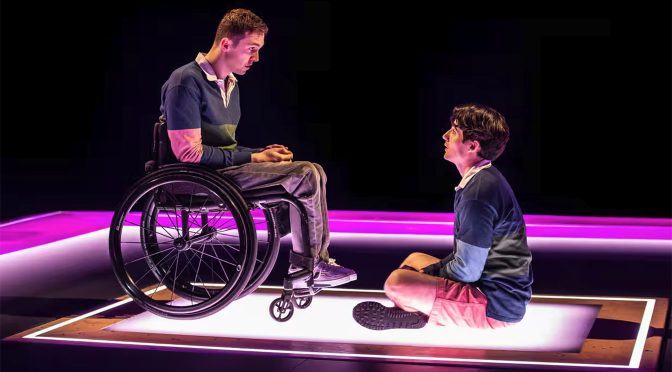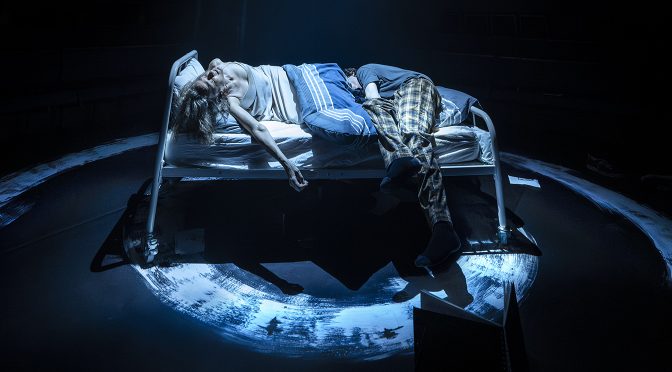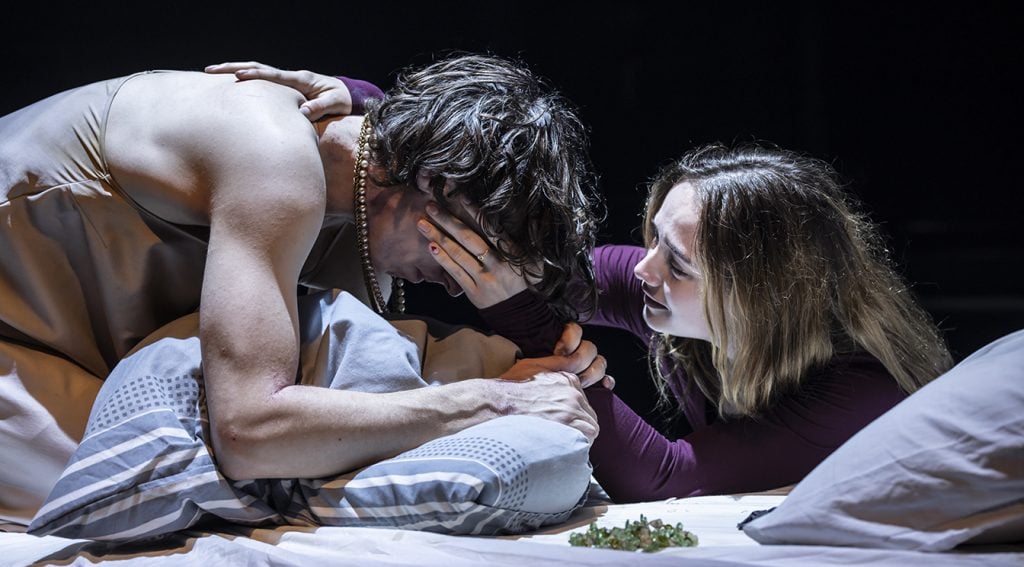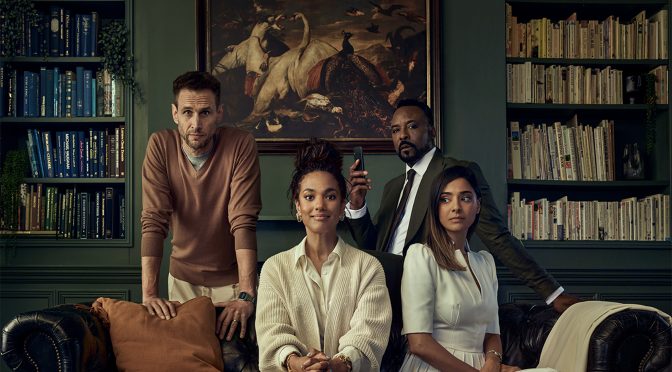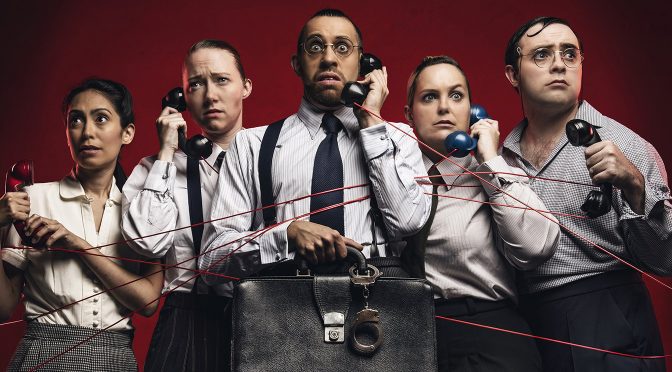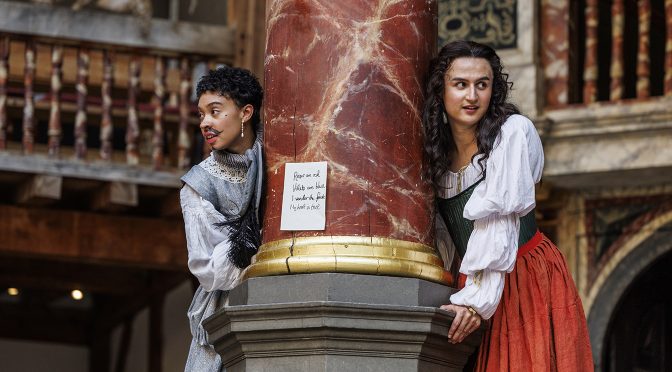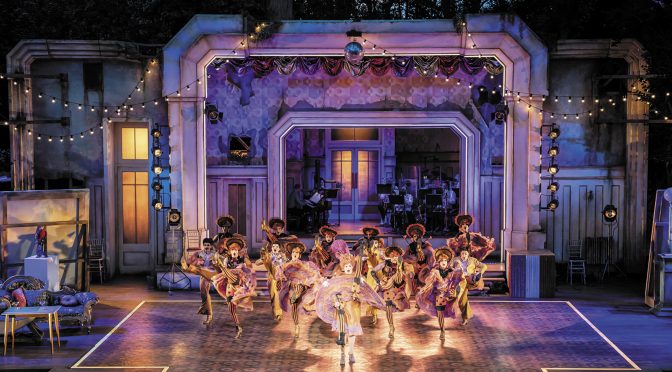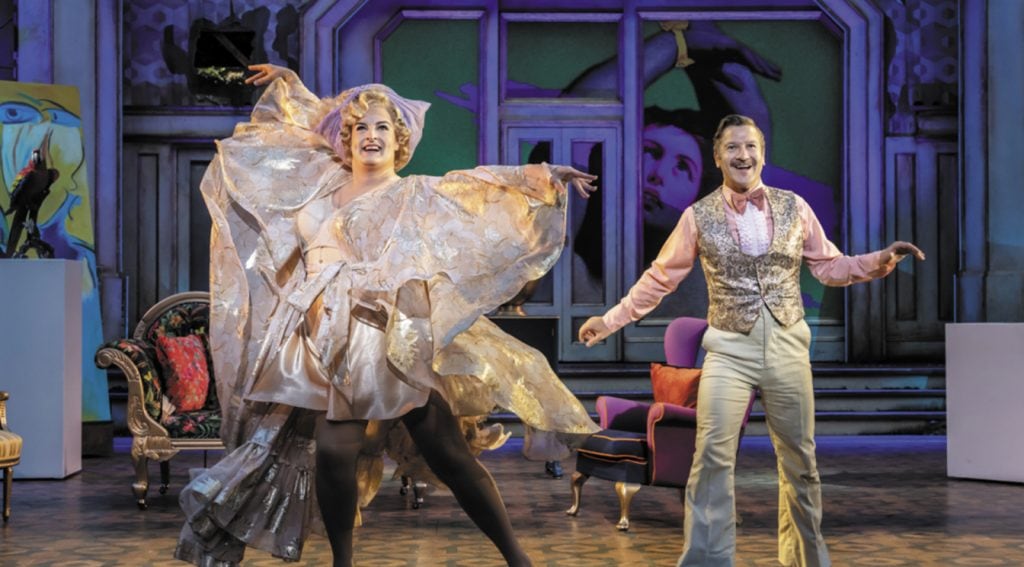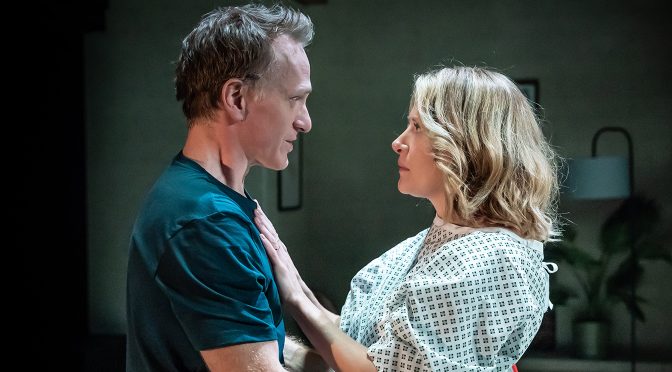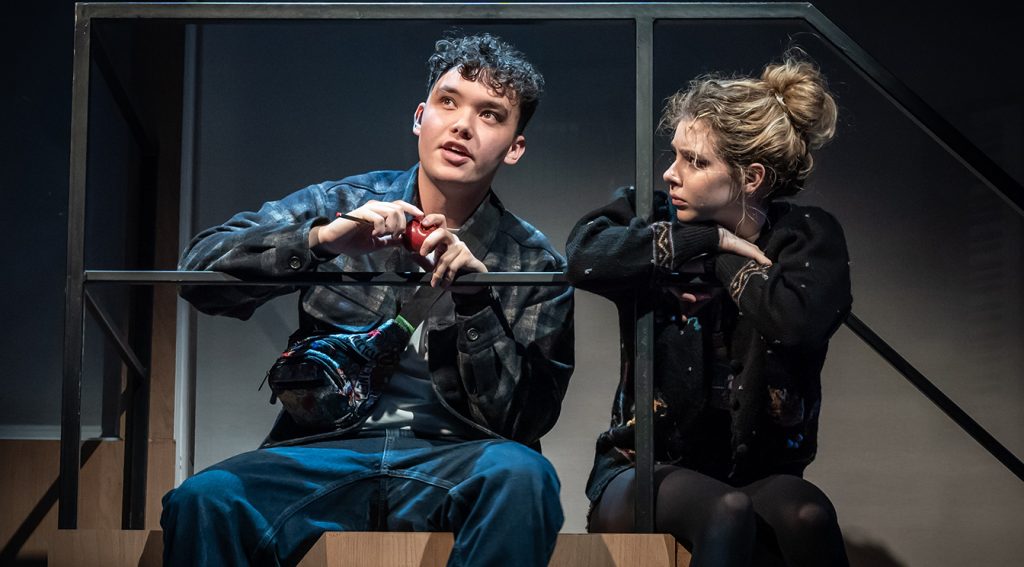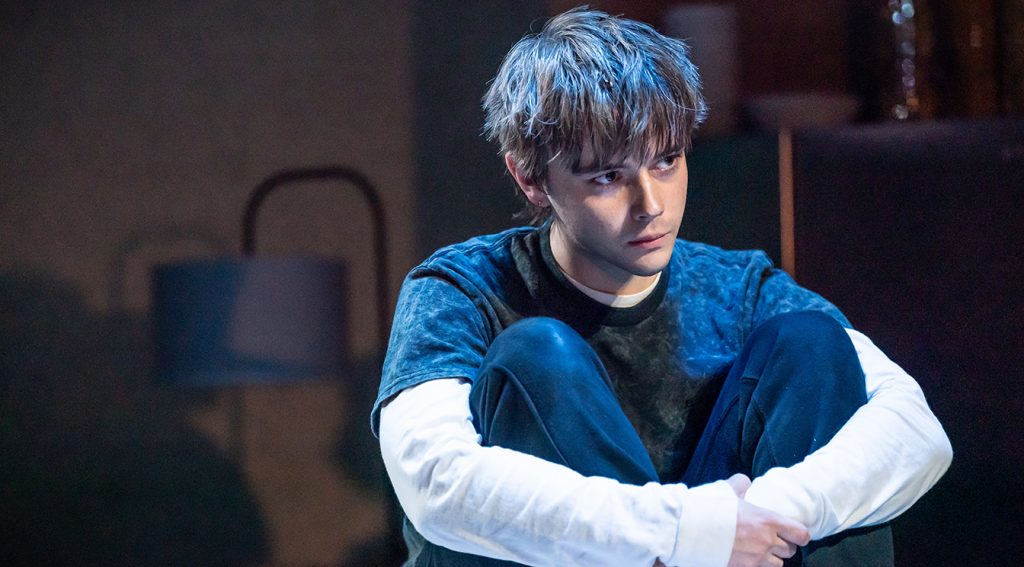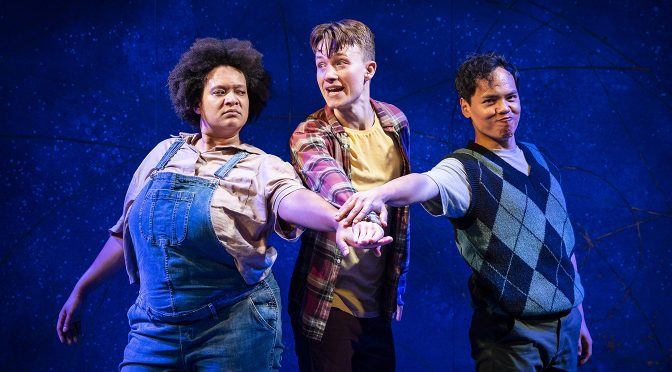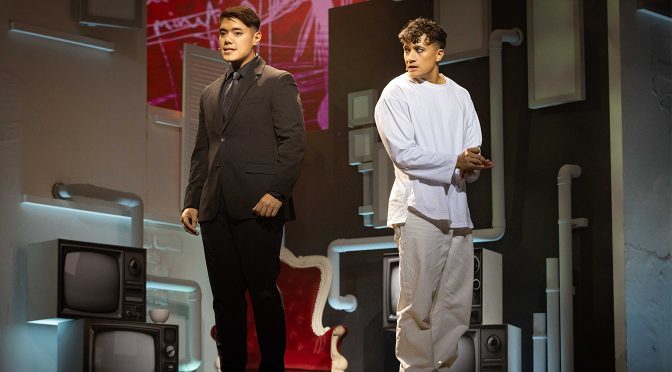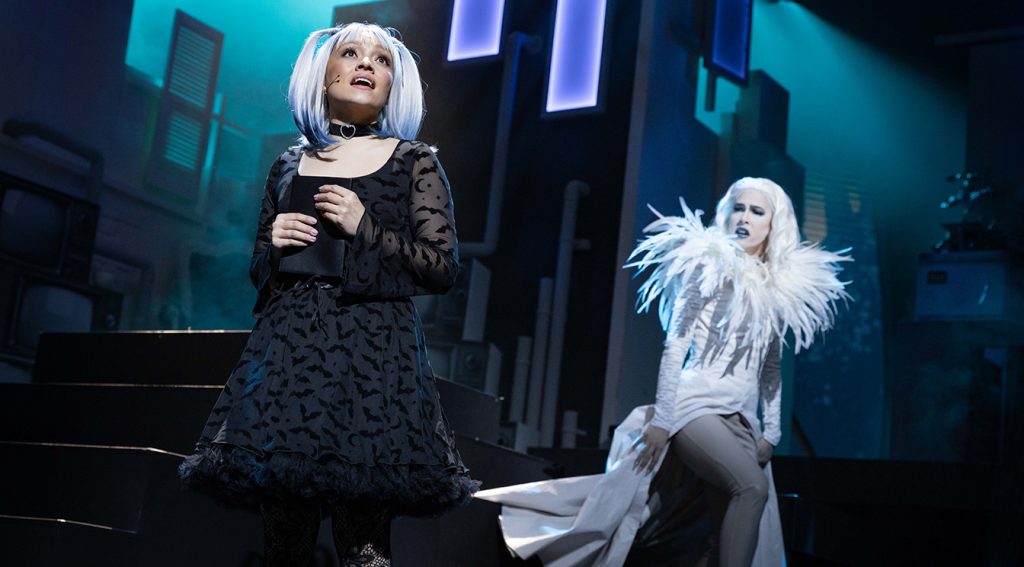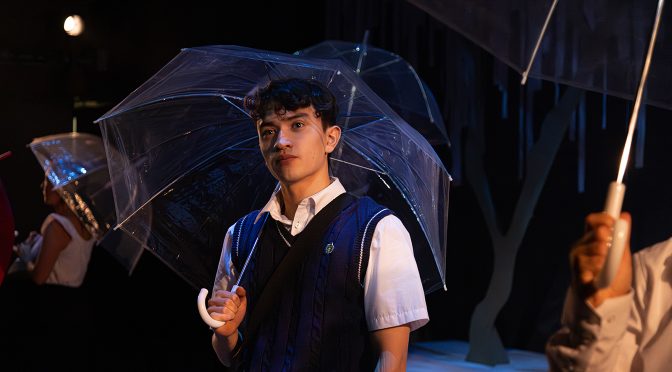This new musical is based on an inspirational memoir by Henry Fraser. A promising rugby player, Fraser had a life-changing accident that left him tetraplegic at only 17. His brave acceptance of his condition and subsequent success as a mouth artist is a heart-warming story that’s hard to criticise. Yes, you will cry. But that doesn’t automatically make a show based on his life a hit.
Following Fraser’s positive outlook, there is a lot to be upbeat about here. The book for the show, by Joe White, is solid. The idea of having Fraser portrayed by two performers (Jonny Amies and Ed Larkin, who are both good) is great. One is Fraser’s ‘pre-accident’ self who stays with the other, haunts him you might say. The two need to say goodbye so that life can move on.
The show’s structure allows plenty of time for Fraser’s family. There is detail about how his three brothers (played by Jordan Benjamin, Jamie Chatterton and Cleve September) cope. And, of course, his parents, played by Alasdair Harvey and Linzi Hateley. Everyone does good job. That so much care is taken over how everyone feels is admirable.
Luke Sheppard’s direction also gets plus points. Sheppard gets a lot out of his mostly young cast and fills the stage with energy. There’s colour, too (remember, Fraser is a visual artist), with Howard Hudson’s lighting and Luke Halls’ video designs making the most of the new venue’s swanky facilities. It’s all aided by strong choreography from Mark Smith, which includes the super touch of using sign language. The show’s inclusivity is smart: making sure anything the able-bodied Amies does is followed by Larkin in his wheelchair is a powerful point and a dramatic highlight of the whole show.
For all the professionalism in the production, and a very hard-working cast, problems with The Little Big Things are too large to be ignored. The humour can most generously be described as plucky. Only Amy Trigg, as Fraser’s physiotherapist, really manages to land jokes. A lot of dialogue, which may well be authentic, comes across as obvious or even touching on manipulative when played out on stage.
Worse is still to come. The music, by Nick Butcher, is unimaginative. There’s an appreciation that different characters get different sounds. But none of the numbers interests and too many sound like bad boy band songs. The singing is good, but it is painfully obvious when strong voices (especially Gracie McGonigal and Malinda Parris) bulk out poor tunes. The lyrics, co-written by Tom Ling and Butcher, are horrid. One number is even based on get well cards. Far too many are inspiration quotes, the kind you find on social media. If you want to put them in a frame, that’s your choice, but please leave them out of songs.
Until 25 November 2023
Photos by Pamela Raith

